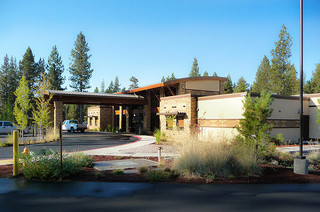July 25, 2012 -- Healthcare advocates are concerned that American Indians who choose not to participate in a coordinated care organization (CCO) will have difficulty getting access to specialty care. On August 1, CCOs begin integrating physical, dental and mental healthcare for about 650,000 people who qualify for Medicaid.
“Native Americans have had the advantage of receiving their healthcare outside of managed care, and the state has worked very thoroughly with the tribes to develop a network of providers to take care of these people, and it’s scary to think that we’re not going to have that in the future,” said Eric Metcalf, health director for the Confederated Tribes of Coos, Lower Umpqua and Siuslaw Indians.
After meeting last week with representatives from the Oregon Health Authority, tribal leaders were cautiously optimistic that coverage and accessibility to services will not be hindered. A tribal consultation specialist is expected to be hired to bridge the gap between the CCOs and tribal members.
Continuing discussions have assured tribal leaders that their healthcare needs of their members who qualify for Medicaid will not be compromised, said Kelle Little, health and human services administrator for the Coquille Indian Tribe Community Health Center.
“When one or our patients needs the services of a cardiologist or an oncologist or similar specialty provider, we want to be sure that they will be able to get the treatments that they need,” she said.
The situation could be a lot worse, Metcalf said, admitting that other states have experienced more problems.
“I really feel lucky to live in Oregon and to be working in the people we do,” he said.
Oregon is committed to working collaboratively with tribes to ensure access to specialty care for those who do not participate in a CCO, said Alissa Robbins, spokeswoman for the Oregon Health Authority, who expects the productive collaboration to continue.
“We’re committed to making access available to specialty care and if concerns arise, we’re committed to finding solutions,” Robbins said. “We have heard of some situations in which tribal members have had difficulty accessing specialty care with an open-card. Because these challenges exist in some communities today, and may continue with the CCOs, we’re hiring a contracting specialist to help facilitate these and any other issues that may emerge.”
Long History of Tribal Healthcare
Tribal members will have the opportunity to go to any provider willing to accept Medicaid fee-for-service payments if they decide not to join a CCO, Metcalf said. Yet, he realizes that might not always be an option since those payments are usually lower than what’s offered by a CCO, and it may be more difficult in a rural community where there are fewer specialists.
Tensions mounted during this ongoing conversation on June 29 when state and tribal representatives discussed contracts with CCOs coming back without any assurances that American Indians would receive specialized care if they weren’t enrolled in the Oregon Health Plan.
“If there is not a contractual obligation to see the non-CCO, fee-for-service American Indian/Alaska Native patients there is very little incentive for the specialist,” Little said. “The reimbursement rate for fee-for-service patients is poor, and the patient care would not be managed by the network.”
The Coquille tribe has provided a precursor to coordinated care for years, Little said, so the CCO concept of “caring for the entire individual” has a long history with the group.
In addition to contract services, CTCLUSI members have received “holistic” services from dental care to family counseling and addiction prevention, which Metcalf counts to the more than 15 years the Indian Health Service has been providing a precursor to coordinated care.
Cultural Sensitivity is Essential
It’s too early to know whether the CCOs will be culturally sensitive to the needs of tribal members, said Metcalf. In other words, he asked, can CCO administrators help bridge a cultural divide between suspicious American Indians and a U.S. government with a history of broken promises?
“They need to reach out to not only the health departments, but also the tribal governments to elicit as much information from the tribes and develop partnerships whenever possible,” he said.
The CCOs also have, in their contracts with the state, an obligation to reimburse tribal clinics when their members seek such services.
“It’s important that American Indians have access to care,” Robbins said. “Those choosing not to enroll with a CCO receive care via an open-card, which is the same as what exists with the current system. Additionally, to ensure access for tribal members, if they are enrolled in a CCO, they can go to a tribal clinic, and those services will be paid for by the CCO.”
But tribal leaders like Metcalf are concerned that this doesn’t go far enough in ensuring healthcare for the population.
“We’ve also encouraged CCOs to contract with them (tribal clinics) to further their ability to provide integrated care that is culturally appropriate,” Robbins said.
Nine federally recognized tribes and representatives of the Native American Rehabilitation Association continue to meet regularly with representatives from the Oregon Health Authority and the Oregon Health Insurance Exchange to work on the details of the program that are unique to particular tribes.
“The discussions have been productive and have demonstrated a willingness among all parties to properly address this important healthcare issue,” Little said. “Thanks to the cooperative spirit of everyone involved in the process, we have seen steady progress toward the resolution of the many issues involved in this program. The final product should reflect that cooperative spirit.”
Image for this story by Michael McCullough (CC BY-NC-SA 2.0) via Flickr.